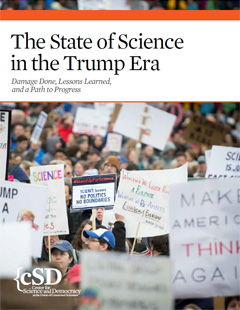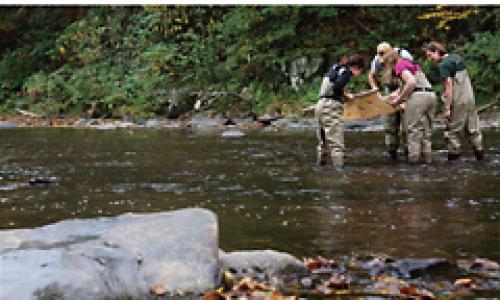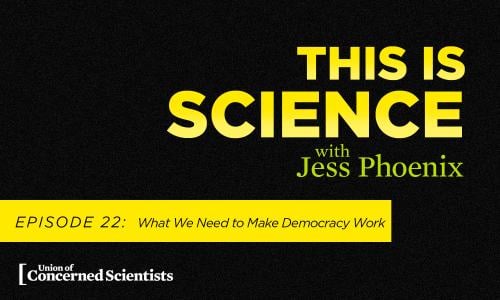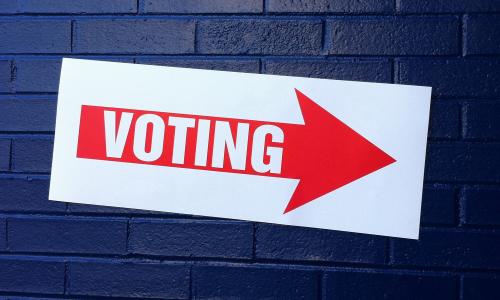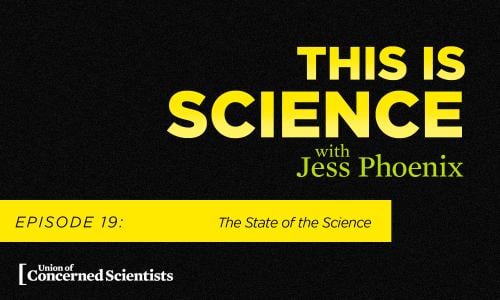Fact sheets
These fact sheets present concise summaries of the report's findings and recommendations on six key issues that Congress should address.
- Scientific Integrity Losses and Lessons for the 116th Congress
- Sidelining Science in Air Pollution Protections
- Censoring the Voices of Scientists
- Sidelining Federal Advisory Committees
- Undermining Science-Based Safeguards
- Improving Scientific Integrity at Federal Agencies
- Halting, Suppressing and Altering Scientific Studies
The Trump administration over its first two years has shown a pervasive pattern of sidelining science in critical decisionmaking, compromising our nation's ability to meet current and future public health and environmental challenges. UCS first documented this pattern in 2017, six months after President Trump's inauguration. Our 2019 report, The State of Science in the Trump Era, finds that the administration has continued to undermine science.
These attacks have not gone unanswered, however. Sustained pressure from scientists and their allies has played a key role in preventing or restraining some of the worst abuses. Several examples of successful pushback against attempts to sideline science are highlighted in the report, along with detailed recommendations for the 116th Congress to use its oversight powers to defend science and science-based policy.
The report shows that the Trump administration's attacks on science have taken many forms, damaging both the scientific enterprise and public health and safety in a variety of ways.
Sidelining expertise and independent science advice
Scientists—whether agency staff, experts in leadership positions, or nongovernmental scientists on advisory committees—have long advised policymakers when good decisions depend on scientific evidence. The Trump administration is excluding this expertise from decisionmaking by:
- Circumventing guidance from scientific experts by shutting out scientists from the decisionmaking process, leaving science positions vacant, disbanding or compromising advisory committees, or sidelining independent expertise.
- Suppressing scientific studies when their findings undercut the administration's political agenda.
- Politicizing scientific grants by allowing political appointees to review them, which undercuts the scientific process and deters progress of the wider scientific enterprise.
Compromising public protections
Our nation's landmark public health and environmental laws require the use of science to set standards that protect people and preserve our natural resources. The Trump administration has ignored or sidestepped many of these processes:
- Eliminating climate change from policy development. The administration has repeatedly ignored, dismissed, or suppressed climate science, limiting the ability of federal scientists to study it or speak about it and removing mentions of climate change from official agency documents and websites.
- Undermining protections from hazards at work and home. The administration has undercut the vital role of government science in protecting people from environmental hazards—weakening chemical safety laws and air pollution rules, limiting public access to information on fracking, and rolling back collection of data on workplace injuries.
- Endangering the environment. The administration has pushed science out of environmental protection for national parks and other protected areas, curtailed or canceled environmental impact reviews, and undermined the Endangered Species Act.
How the Administration Sidelines Science: The Case of the Clean Air Act
Under the Clean Air Act, the EPA must set ambient air pollution standards based on what protects public health. But under the Trump administration, this science-based process is being undermined at several steps, making it more difficult for the EPA to set health-based ambient air pollutant standards for pollutants like ozone and particulate matter.
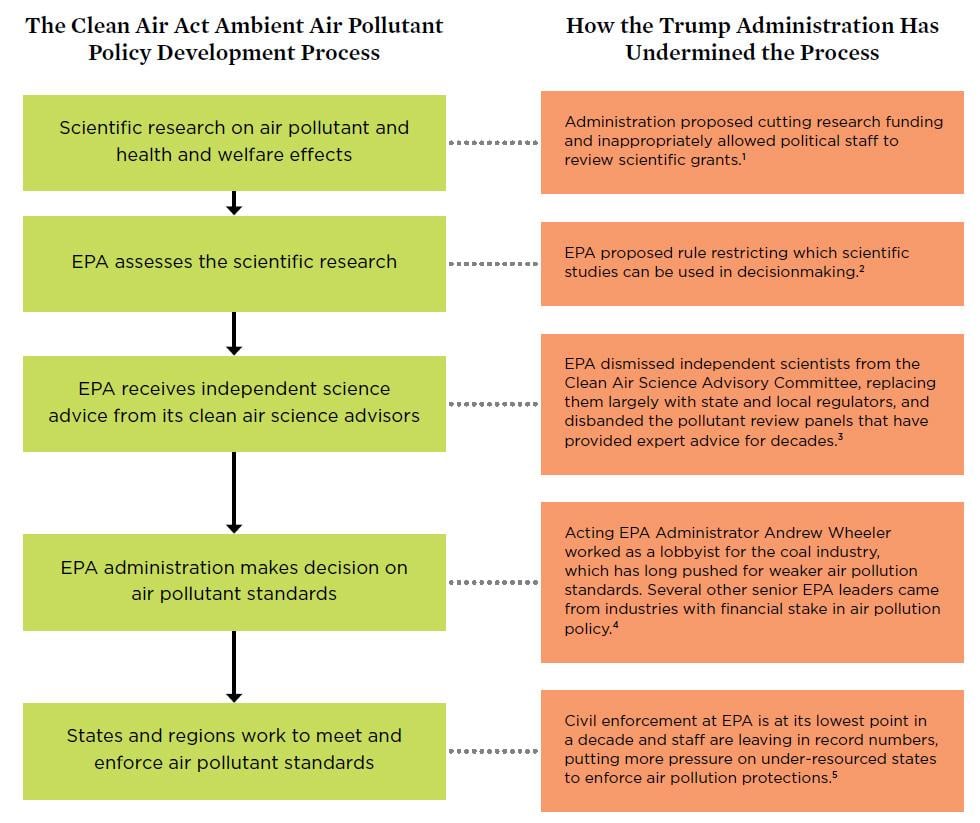
Reducing public access to government science and scientists
Open communication is critical to both the scientific process and an informed public. Unnecessary constraints on scientist communication have increased over several administrations, and the Trump administration has continued and accelerated this trend:
- Restricting scientists' communications. Agencies have restricted the language scientists can use in public communications, instituted new barriers to scientists' interactions with reporters, and omitted important scientific information from news releases.
- Creating a chilling environment. A UCS survey of federal scientists showed that the administration has created a culture of fear among scientists at several federal agencies, resulting in self-censorship and reduced effectiveness.
- Restricting federal science at scientific conferences. Attending scientific conferences is an important way for scientists to share information with their peers and keep up to date on developments in their field. The administration has blocked or created political barriers to conference attendance for many federal scientists.
- Changing data use and availability. Reducing access to data undermines scientists' ability to inform decisions on critical topics. The Trump administration has repeatedly limited such access by failing to collect data, removing information from easily accessed websites, and even restricting the ability of its own scientists to use important data when crafting regulations.
Scientists and their allies push back
Scientists have not stayed silent or passive in the face of the Trump administration's attacks. Here are five cases where they pushed back—and won. (See the report document for more detailed versions of these stories.)
A roadmap for the 116th Congress
Using the range of oversight tactics at its disposal—including hearings, letters, deposition authority, and subpoena power—Congress can be a powerful ally for science, scientists, and science advocates. The report points to three key areas where Congressional oversight can help hold the administration accountable and strengthen the role of science. (For a detailed list of recommendations, see the full report.)
- Protect public health and safety by investigating the harms caused by anti-science actions and strengthening science-based laws and programs.
- Fight corruption of science-based decisionmaking by investigating inappropriate corporate influence, addressing conflicts of interest, and passing reform measures such as legislation to reduce the influence of money in politics.
- Protect science and scientists at federal agencies by passing legislation to strengthen scientific integrity at federal agencies, such as the previously proposed Scientific Integrity Act.
Downloads
Citation
Carter, Jacob, Emily Berman, Anita Desikan, Charise Johnson, Gretchen Goldman. 2019. The State of Science in the Trump Era: Damage Done, Lessons Learned, and a Path to Progress. Cambridge, MA: Union of Concerned Scientists. https://www.ucsusa.org/resources/state-science-trump-era
